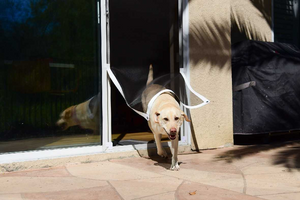4 Animal Rights Organizations You Can Get Involved with Today
You love your pet. Food, water, time, and energy invested are all telling of the immense care and concern you’re developed for him. Go you! You’ve managed to check each box on our responsible pet owner guidelines checklist.

Unfortunately, not all animals are not are taken into the home of a loving pet owner like you. Here lies our issue. There are ample resources to care for the upward of 4 million animals that are killed each year in shelters. Here are 10 organizations that do incredible service for animals, and are very easy to become involved with.
Best Friends Animal Society
This organization was founded in 1984 with the intention to provide dogs and cats with safe and loving homes. BFAS’ mission is the same as it has always been: “no more homeless pets,” though they also focus on reducing the number of needless animal deaths per year. Shelters killed over 17 million animals annually about 30 years ago. Since Best Friends has begun its mission, that number has been reduced by 76%! Some of their other initiatives include stopping puppy mills, saving cats, and ending breed discrimination.
Dumb Friends League
No, I didn’t stutter. The Dumb Friends League was founded in 1910, and was named after a British animal shelter. The term “dumb” was used a long time ago to describe animals, as they do not speak human languages. This was a good point of reference for their mission statement, which is “speaking for those who can’t speak for themselves.” 25,000 abandoned animals are “spoken for” each year by being placed in shelters, being reunited with their owners, or paired with a new families. Additionally, the organization offers humane animal treatment classes, as well as free spaying and neutering for pets in underserved areas.
Friends of Animals
Headquartered in Darien, Connecticut, Friends of Animals seeks to free animals from cruelty and institutionalized exploitation around the world. Friends does this by operating the only nationwide cat and dog neutering initiative in the United States, which helps curb extreme neutering costs for over 40,000 animals annually. The group has also established the Wildlife Law Program to help bridge the gap between animal and environmental activism. Michael Harris, Director of the Wildlife Law Program says, “We do not purport to know what is best for any wild animal; we only seek to be a surrogate for these creatures in the human-controlled courtrooms and legislatures around the world where humans too often make horrific judgments about the fate of wild animals.”




